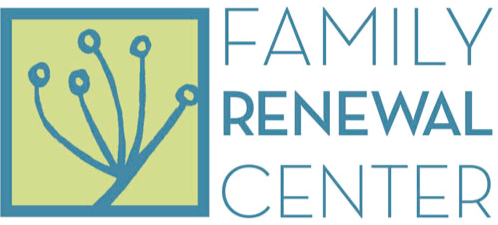Unless you have been living in a cave these past 10 weeks, you have witnessed the escalation of a country’s corporate fear. As a society, reactions are being made out of fear and not facts. While I realize this has become a worldwide issue, I can only speak to what I have experienced here in the United States.
Let’s look at the facts. On January 9, 2020 Chinese government declared the emergence of a new virus named Covid-19 or Coronavirius. January 21, a man in Washington State, who returned from Wuhan was found to be ill from the virus. He later recovered. January 23, Wuhan, the epic center of the virus, was quarantined. January 30, the World Health Organization proclaimed a global health emergency. January 31, the Trump administration closed the boarders to people trying to enter the country from China and soon expanded the travel ban to other hard hit countries. February 2, the first death outside China was recorded when a man in the Philippines died. At the time of this writing, March 6, 2020 at 10 am, worldwide there are currently 101,704 cases, with 56,107 people having officially recovered, and unfortunately 3,461 deaths (Worldometer, 2020).
Reading these facts alone can be concerning, so lets compare it to something all Americans are familiar with, the flu. In the current United States 2019-2020 flu season, 32 million people are thought to have suffered with the flu, 310,000 ended up in the hospital, and unfortunately 18,000 deaths have occurred (IDSE, 2020). The flu season is still in full swing with it expected to end by April or May. Yet, we as a society are not panicking or even responding to this health crisis. How is it that we are consumed by one crisis and not the other?
We as humans negatively react to the unknown. Every fall in the United States, we are inundated with encouragements about getting the flu shot. Most people have been sickened with the flu or watched a loved one fight it, so we know what to expect. The flu is a known contagion so people are not overwhelmed with fear about it.
Covid-19 has no history, there are no boundaries around what may or may not happen, and there is unlimited speculation on how bad it will actually become. People are being sucked into the fear of the unknown. We have forgotten Franklin D Roosevelt’s proclamation that the “only thing we have to fear is fear itself” (National Archives, 2016).
The human brain has a single purpose. It wants to survive. The part of the brain that humans share with reptiles, or the emotional system, flares into action when situations arise that can be interpreted as dangerous. When a person is responding out of the emotional system, they have stopped thinking and are just reacting. This is highly appropriate when you step into the street and a bus zooms by so you instinctively jump back on the sidewalk. However, it rarely helps when you need to make choices. I’ve been hearing an awful lot of conversations based in the emotional system. Here is a compilation of some of the conversations.
“I hear more people died in Washington” “Yes, it is so scary. I hear the whole state will be quarantined.” “That’s right, I heard I need to get ready for a 2 week shut down. I don’t have enough food.” “2 weeks? I heard it may be up to 2 months. I’m going to make sure I buy everything I could possibly need.” “2 months? How will we survive that?”
Interestingly, humans also have an intellectual system. This is the portion of the brain that is only found in humans. It provides people the ability to think through the situation and make sound decisions. To use your intellectual system, you need to recognize you are responding through your emotional system.
Is your heart rate increasing because of a news report? Are you finding yourself mentally spinning about how to prepare for the Covid-19 invasion? Do you wake up hyper aware of you or your family’s physical health? Has it become so overwhelming that you refuse to even talk about the situation? Do you struggle to keep yourself from running out and buying months worth of food?
Next time you experience yourself responding through your emotional system, take a deep breath and focus on the facts. Yes, people are sick. Most of the deaths in Washington State were from a single nursing care center and the victims had previous health issues. Yes, it is spreading. What are the things you can do to help protect yourself? Wash your hands, keep your hands off your face, cover your face when you sneeze or cough, elbow bump instead of shaking hands, stay home if you are in a high risk category. While it makes sense to keep your kitchen shelves stocked, hording in case something might go wrong will only contribute to the problem.
As a society, we need to purposefully set our emotional reactions aside and focus on the facts. As individuals, each person needs to find a method of self-calming ( i.e. deep breathing or focusing on facts) so each person can make decisions based on facts and not fear.
Julie Swanberg-Hjelm, PhD, LMFT, LMHC
Please note: This is not a medical blog. The information is about managing the anxiety around the fear of the unknown. If you are concerned about your health, please see the appropriate medical practitioner.
Infectious Disease Special Edition (IDSE; 2020). Respiratory tract infections/ Influenza. https://www.idse.net/Respiratory-Tract-Infections—Influenza/Article/03-20/Flu-Season-Is-Not-Over%3B-Remains-a-U.S.-Threat/57469
National Archives. (2016). FDR’s first inaugural address declairing ‘war’ on the great depression. https://www.archives.gov/education/lessons/fdr-inaugural
Worldometer. (2020). COVID-19 Coronavirus outbreak. https://www.worldometers.info/coronavirus/
Image: ID 171120046 © Anatoly Kazakov | Dreamstime.com

